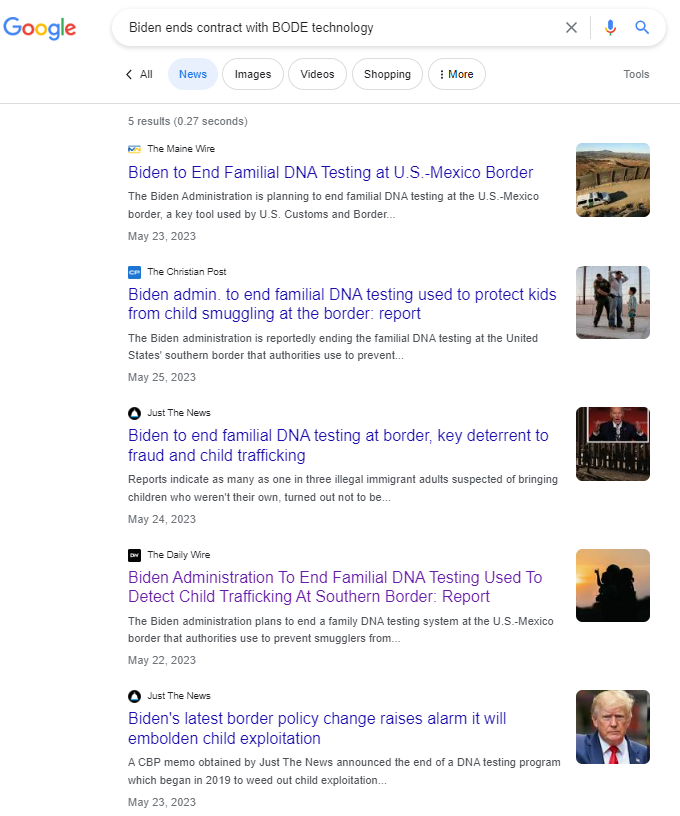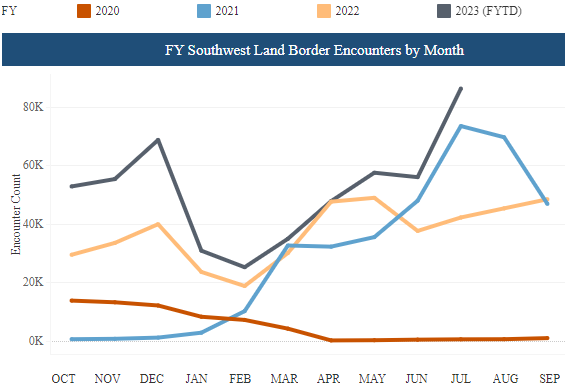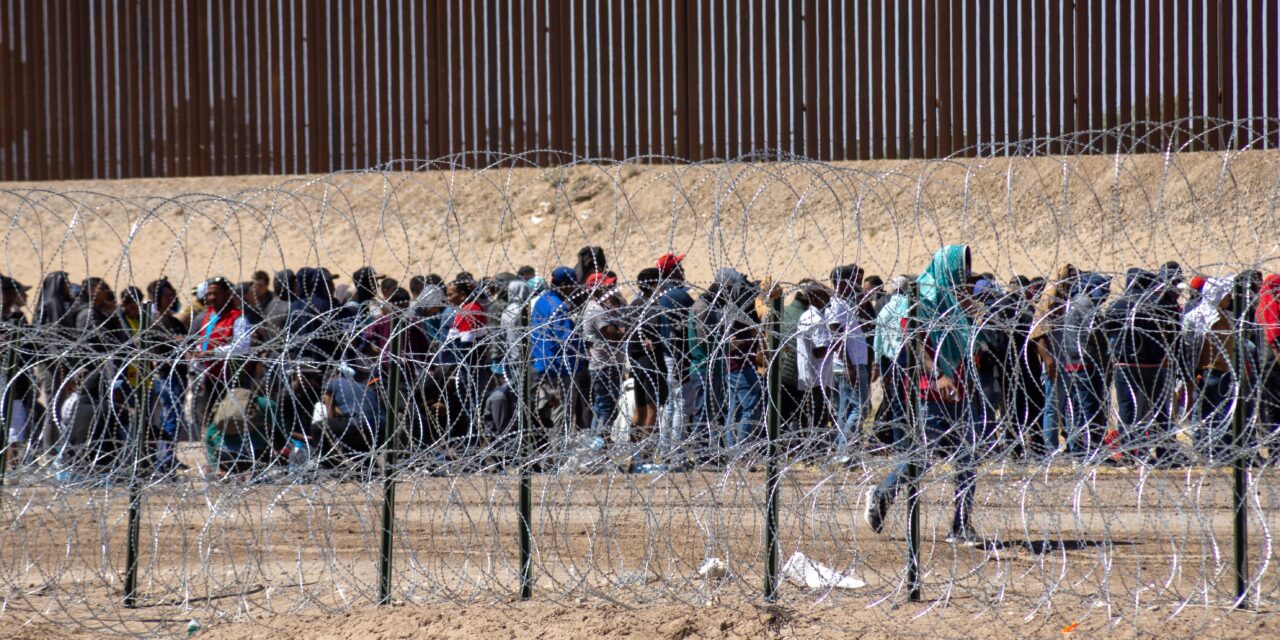San Diego county supervisor Jim Desmond asked the White House to reestablish familial DNA testing at the U.S-Mexico border in a letter last week, echoing some officials’ concern the program’s end will increase child trafficking.
Familial DNA testing is used to catch “fraudulent families” — smugglers, cartel members and desperate migrants claiming trafficked children as their own — trying to enter the country illegally. U.S. immigration law can incentivize this behavior by making it significantly easier for families with children to enter the country illegally.
Children trapped in faked families are forced to brave the physical and environmental dangers of illegal immigration without guardians protecting them. Some are “rented” out to migrants by their own families. Others are trafficked and “recycled” by child smuggling rings — forced to fly back to Central and South America after successfully crossing the border to complete the brutal journey again.
Children as young as six-months-old have been fraudulently ferried across the Rio Grande as natural offspring by migrants seeking to enter the country quickly.
Immigration officials implemented familial DNA testing at some illegal border crossing sites in May 2019 — a month after the Department of Homeland Security (DHS) told Congress they’d identified 3,000 fraudulent families in six months — to help immigration officials identify and save trafficked children.
The government planned to expand familial DNA testing in 2020 after the pilot programs’ early success, signing a potential five-year contract with BODE Technology to supply rapid DNA tests to the border.
But four months ago, a leaked memo to border patrol agents revealed the Biden administration quietly ended their contract with BODE two years early and called an immediate halt to all familial DNA testing at the border.
The Administration has offered no rationale.
All publicly available metrics show familial DNA testing programs were successful. Two pilot programs, aptly named Operation Double Helix 1.0 and 2.0, discovered 95 fraudulent families — 16% of the combined 606 families tested. A subsequent joint investigation conducted by border patrol and DHS uncovered 84 faked families using DNA. An estimated 150 more confessed to being fake when confronted with testing.
Most critics of collecting DNA at the border argue it takes too long, is unfairly burdensome and violates immigrants’ civil rights. They further contend the government shouldn’t collect and store biological information without restrictions on what its used for.
These arguments reflect a common misconception that all DNA collection from illegal immigrants is part of the same initiative. In reality, there are several border programs that use and store DNA differently.
Familial DNA testing is neither time consuming, overly burdensome or invasive. A mouth swab is used to obtain a DNA sample, which is processed in an hour and a half. The test returns a simple “positive” or “negative” result, rather than a full DNA analysis, and the sample is destroyed once the test is complete.
The familial DNA wasn’t harmful by most critics’ metrics and, most importantly, saved children from being trafficked in fraudulent families. There’s no immediately apparent reason for the program’s discontinuation.
Six congress members made similar observations in a May letter questioning why the program was cancelled. A day later, the House Subcommittee on National Security launched an investigation exploring what border patrol programs would identify fraudulent families without DNA testing. The subcommittee further emphasized the importance of discouraging faked family formation, citing reports of as many as 3 in 10 children who underwent DNA testing were unrelated to their supposed “family members.”
The investigation is ongoing.
The White House has never announced, addressed or acknowledged the end of familial DNA testing publicly, and there’s no indication it responded to the congresspeople’s letter. Despite its importance, the issue has received little to no mainstream media coverage.

We cannot measure the number of fraudulent families and trafficked children that have gone unidentified in the absence of DNA testing. We do know, however, that border patrol has encountered more than 514,000 families at illegal border crossing this fiscal year, outpacing the last three by at least 70,000 families — with two months to go.

Assuming as little as 1% of those families include one trafficked child, at least 5,140 children will have been exploited by immigrants seeking to enter the country and likely abused in other ways. All available evidence suggests that number is much higher.
Removing safeguards against child exploitation is unjustifiable, especially when the policy has no documented negative effects.
Supporters of familial DNA testing should put pressure on the executive branch to explain its discontinuation and support officials, like Jim Desmond, who want to reimplement and expand the program.
Photo from Shutterstock.






